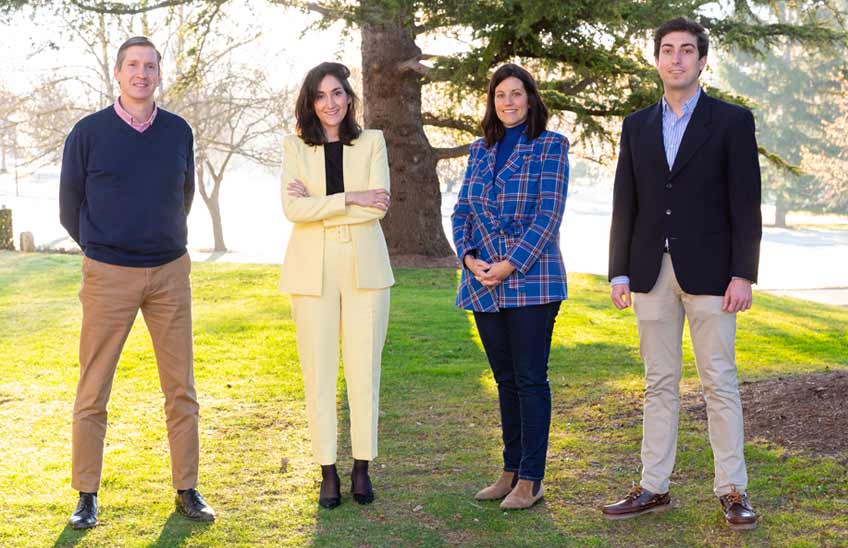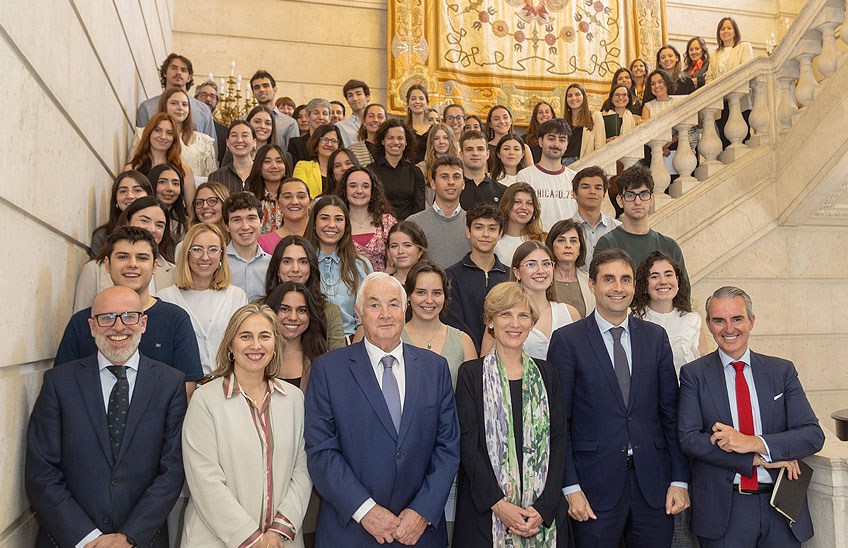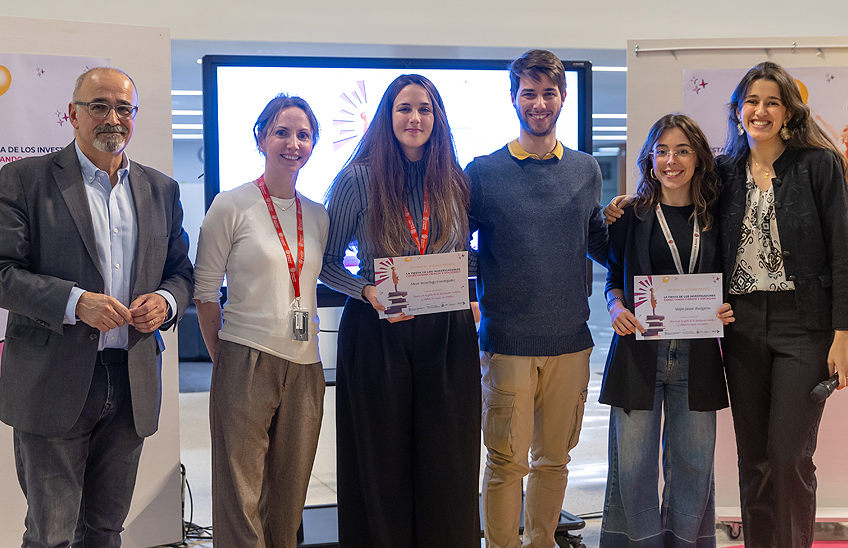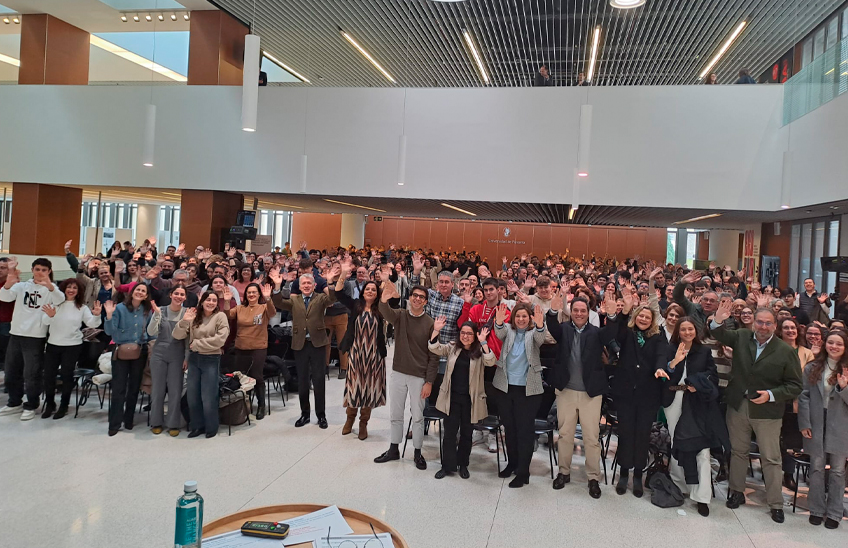Planning, decision-making and commitment to learning prevent substance use among adolescents
This is highlighted by a study carried out by Schools of Nursing and Education and Psychology, together with the ICS, of the University of Navarra, in which 6,755 adolescents from Peru, Chile, Spain and Mexico took part.

FotoManuel Castells<br>/De izquierda a derecha los investigadores Alfonso Osorio, Maider Belintxon, Marta Vidaurreta y Álvaro Balaguer.
11 | 02 | 2022
Planning, decision making and commitment to learning have result been found to be relevant factors in preventing substance use in adolescents. This is demonstrated by a research carried out at the project "A+ (Adolescents in Positive)" and financed by the research plan of the University of Navarra PIUNA, with the participation of the professors of the School of Nursing, Maider Belintxon and Marta Vidaurreta; María Calatrava, of the Institute for Culture and Society (ICS); and Alfonso Osorio, researcher in the ICS and professor together with Álvaro Balaguer of the School of Education and Psychology of the University of Navarra.
The article "Internal developmental assets and substance use among Hispanic adolescents. A cross-sectional study", published last November, gathers data from a survey survey of 6,755 adolescents aged between 12 and 18 from Spain (1,532), Mexico (2,134), Chile (864) and Peru (2,225). The study found that there is a link between planning and decision-making and substance use. "Adolescents with better planning skills and a sense of responsibility will choose to follow the advice of adults and health experts aimed at preventing substance use because of the risks involved," explains Maider Belintxon.
On the other hand, it indicates that adolescents' engagement in learning, specifically in aspects linked to doing homework and reading for pleasure, is associated with a lower prevalence of substance use. "Reading favours the acquisition of knowledge, information and opens up imaginary worlds, and can encourage young people to adopt healthier lifestyles," says Alfonso Osorio.
Finally, the study found no association between interpersonal skills, such as sociability, and substance use. Although previous studies have found positive effects of sociability, negative effects have also been found. Therefore, "it is necessary to study better how this skill influences the well-being of adolescents", adds Marta Vidaurreta.
Focusing on preventive health programmes for young people
According to the responses obtained at survey on substance use, 15% of the participants had used tobacco, 32% had used alcohol, 16% had binge drunk - consumed an excessive amount of alcohol in a short period of time - 6% had used marijuana and 3% had used other drugs. "These data show that, although substance use among adolescents is worrying, the majority are those who do not use. It is important to detect who are those who do not use, why they do not use (what protects them), and to try to extend this protection by designing preventive public health programmes for children and young people," says Alfonso Osorio.
→ Maider Belintxon, María Calatrava, Alfonso Osorio, Álvaro Balaguer, Marta Vidaurreta (2021). Internal developmental assets and substance use among Hispanic adolescents. A cross-sectional study.




